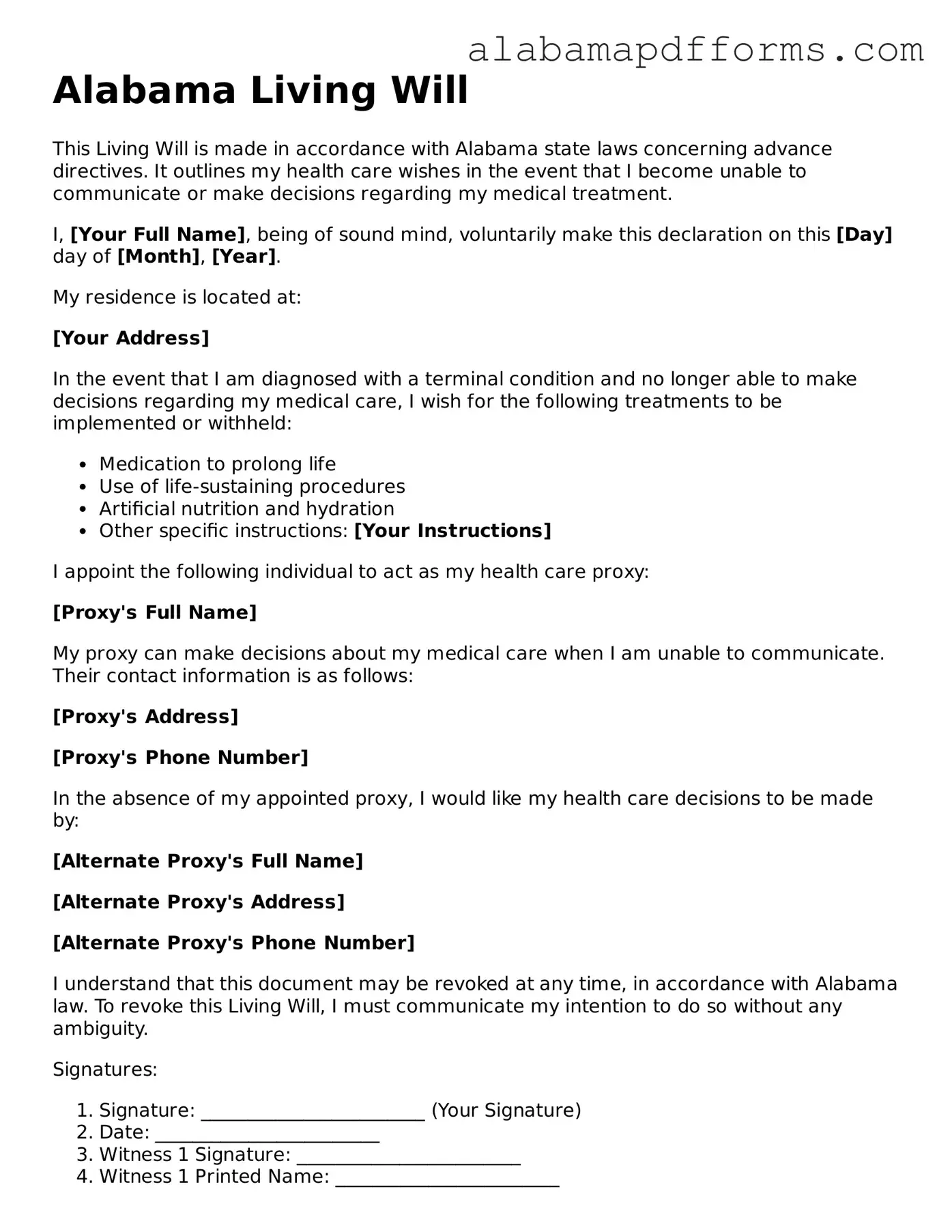Legal Living Will Document for the State of Alabama
A Living Will is a legal document that allows individuals in Alabama to outline their preferences for medical treatment in case they become unable to communicate their wishes. This form serves as a vital tool for ensuring that healthcare decisions align with personal values and desires. By completing a Living Will, individuals can provide clarity and guidance to family members and healthcare providers during difficult times.
Fill Out Your Document Online

Legal Living Will Document for the State of Alabama
Fill Out Your Document Online

Fill Out Your Document Online
or
➤ Living Will PDF Form
Your form is halfway done
Complete and edit Living Will online in minutes, hassle-free.